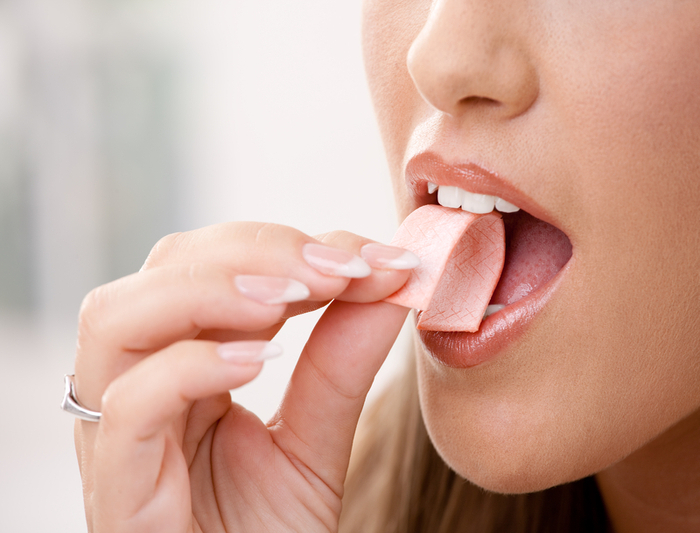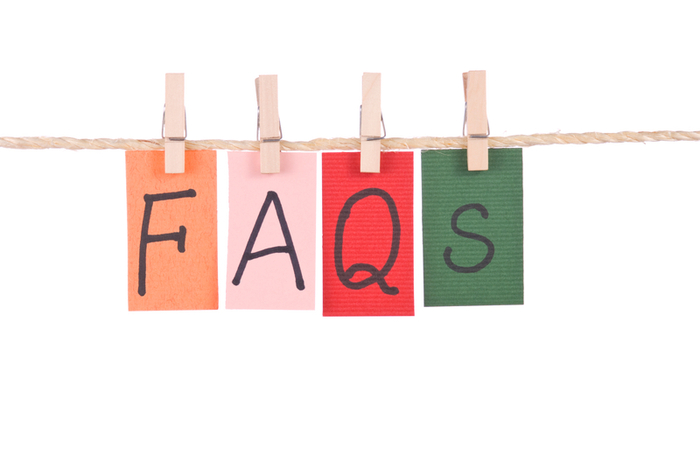- Calls to this hotline are currently being directed to Within Health or Eating Disorder Solutions
- Representatives are standing by 24/7 to help answer your questions
- All calls are confidential and HIPAA compliant
- There is no obligation or cost to call
- Eating Disorder Hope does not receive any commissions or fees dependent upon which provider you select
- Additional treatment providers are located on our directory or samhsa.gov
How Do I Know if I Need Help for Chewing and Spitting Disorder?

Some people will chew food and spit it out before swallowing, as a way to manage weight.
But while the practice sounds like a way to have it all—and is sometimes pitched as a “dieting tip”—it can actually be a cause for concern, for a number of reasons.
What is Chewing and Spitting Disorder?
As its name implies, chewing and spitting behavior (CHSP) is characterized by chewing food and then spitting it out without swallowing. The concept is to enjoy the flavor of something—usually rich, highly palatable foods—without taking on the calories.
Yet, even if the behavior starts as an attempt to manage weight, it’s possible for this habit to become compulsive after time, potentially contributing to the development of other disordered eating patterns.
Causes of CHSP
Like many unhelpful thoughts and behaviors around food and eating, CHSP can be tied to a number of mental health conditions, including:
Some people may chew their food a specific number of times before spitting it out, which could be an expression of some of these conditions, especially certain anxiety disorders.
Low self-esteem and negative body image may also play a role in maintaining this behavior. Still, experts have yet to name a specific cause of CHSP.
How Common Is CHSP?
Regardless of its potentially harmful implications, CHSP is sometimes advertised as a “dieting tip.” Some bloggers or influencers may promote the idea as a “way to have it all,” while the internet is filled with questions about how to start using CHSP.
And that high visibility can have an impact. More than 12% of teenagers in one study reported at least trying chewing and spitting behavior. [1]
Still, those who had tried CHSP also tended to score higher for psychological distress, which may implicate deeper concerns at play. [1]
Chew & Spit: Disorder or Symptom?
Experts are split on how exactly to define this behavior. Some believe CHSP constitutes its own eating disorder, while others think it represents a symptom of other disordered eating conditions.
CHSP as a Disorder
At least when it comes to official recognition, chewing and spitting behavior isn’t technically a disorder. The condition doesn’t appear in the Diagnostic and Statistical Manual of Mental Disorders (DSM), which is the official record of all recognized mental health disorders.
Spitting and chewing was initially thought of as a form of purging, and was studied among people who struggle with bulimia nervosa. And an earlier version of the DSM listed CHSP as a symptom of a group of disordered eating patterns referred to as eating disorders not otherwise specified (EDNOS). [2]
Still, some experts argue that the behavior should be re-introduced to the official record. Eliminating it, they claim, could allow doctors to miss some of these behaviors and lead to prolonged difficulties for people who struggle with CHSP. [3]
CHSP as a Symptom
Many researchers maintain that chewing and spitting isn’t a disorder in itself, but rather a symptom of other eating disorders.
One study found that nearly 25% of people with diagnosable eating disorders have used chewing and spitting as compensatory behavior. [4] And another scientific review concluded that CHSP was a potential indicator of worsening disordered eating behavior. [2]
Rather than designate CHSP as its own disorder, these professionals liken it to other common eating disorder symptoms, including:
Side Effects of Chewing & Spitting Out Food
While experts aren’t quite sure how to define chewing and spitting behavior, they agree that the idea is a dangerous one.
Malnourishment
Malnourishment is one potential side effect, as spitting food out prevents the body from absorbing needed nutrients. But CHSP has also been tied to weight gain, likely due to overeating that occurs to make up for the behavior.
Stomach Issues
People who partake in chewing and spitting are also at risk of stomach problems. When you chew food, your body releases stomach acids to prepare for digestion. Chewing and spitting means releasing acid into an empty stomach, often leading to stomach ulcers or other complications.
Other Side Effects
Wwollen salivary glands, tooth decay, cavities, and hormonal imbalances are also serious potential side-effects of CHSP.
What to Do About Compulsive Spitting
If you are chewing and spitting, it could be an indicator of deeper concerns.
These behaviors are often tied to or help uphold other mental health conditions or disordered eating patterns, which can be harmful for your mind and body, especially long-term.
Seeking help for the condition can help address not just chewing and spitting behaviors, but any other underlying issues that may be going on.
Therapy can help you address any unhelpful thoughts you may be experiencing, and help you take your first steps on the road to recovery.
Chewing & Spitting Disorder FAQs
If you or a loved one are struggling with chewing and spitting behaviors, you may have some questions about the condition or what to do.
Does chewing and spitting lead to insulin resistance?
Many people participating in diet forums ask this question.
When tasting sweet food, as often happens when participating in chewing and spitting, the body may release small amounts of insulin, though it’s unclear whether this alone leads to insulin resistance.
It’s more likely that insulin resistance could build up from skipping meals or eating one large meal a day—which may or may not happen in conjunction with spitting and chewing. [6]
Does chewing and spitting cause weight loss?
It depends. People who restrict their intake through CHSP may see some weight loss, especially in the short-term. But the behavior has also been tied to cycles of binging and purging or overeating, which could actually lead to weight gain.
Does chewing and spitting out food cause weight gain?
Chewing and spitting doesn’t directly lead to weight gain. The action may even result in weight loss at first.
But CHSP has also been connected to weight gain, as it’s been linked to cycles of binging and purging, or instances of overeating.
Are calories absorbed in the mouth?
Some calories may be absorbed in the mouth, though a majority are typically taken in later on in the digestive process. It depends on the type of food you’re eating, how long it’s in your mouth, and how much of it you may swallow.
If I chew food but don’t swallow, do I have an eating disorder?
If you regularly engage in chewing and spitting behaviors, it may be a sign of an eating disorder. Speaking with a trained therapist could help you understand these behaviors, and help you form healthier habits.
References
- Aouad,P., Hay, P., Soh, N., Touyz, S., Mannan, H., Mitchison, D. (2019, November 26). Chew and Spit (CHSP) in a Large Adolescent Sample: Prevalence, Impact on Health-Related Quality of Life, and Relation to Other Disordered Eating Features. Eating Disorders, 29(5): 509-522.
- Aouad, P., Hay, P., Soh, N., Touy, S. (2016, August 22). Chew and Spit (CHSP): A Systematic Review. Journal of Eating Disorders, 4(23).
- Chew and Spit: Eating Disorder Researchers Say We Need to Talk About this Taboo Issue. (2020, June 1). ABC. Accessed August 2022.
- Song, Y. J., Lee, J., Jung, J. (2015, October). Chewing and Spitting Out Food as a Compensatory Behavior in Patients with Eating Disorders. Comprehensive Psychiatry, 62:147-151.
- What Are the Health Effects of Chewing and Spitting Out Food? (2022). Johns Hopkins All Children’s Hospital. Accessed December 8, 2022.
- Effects of Chewing and Spitting Food. (2016, July 15). Columbia University: Go Ask Alice. Accessed December 8, 2022.
The opinions and views of our guest contributors are shared to provide a broad perspective of eating disorders. These are not necessarily the views of Eating Disorder Hope, but an effort to offer discussion of various issues by different concerned individuals.
We at Eating Disorder Hope understand that eating disorders result from a combination of environmental and genetic factors. If you or a loved one are suffering from an eating disorder, please know that there is hope for you, and seek immediate professional help.
Last Updated & Reviewed By: Jacquelyn Ekern, MS, LPC on January 31, 2023
Published on EatingDisorderHope.com

